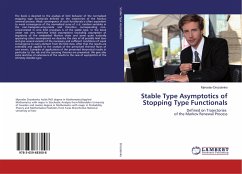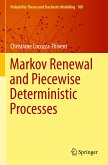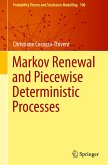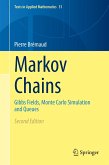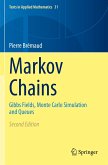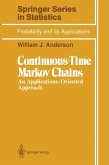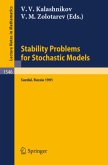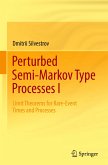The book is devoted to the analysis of limit behavior of the normalized stopping type functionals defined on the trajectories of the Markov renewal process. Weak convergence of such functionals is often equivalent to weak convergence of the normalized sums of i.i.d. random variables in the non-triangular-array-mode and therefore corresponding non-concentrated in zero limit processes is of the stable type. In the book under not very restrictive initial assumptions (including assumption of ergodicity of the embedded Markov chain and some quite naturally appearing other assumptions) we describe the class of all possible limit laws and give several variants of the necessary and sufficient conditions of weak convergence to every element from the limit class. After that the results are extended and applied to the analysis of the perturbed thinned flows of rare events. Examples of applications of the presented theoretical results in particular to the risk and the queuing theories are presented. We give also some sketches of extensions of the results to the case of asymptotics of the infinitely divisible type.
Bitte wählen Sie Ihr Anliegen aus.
Rechnungen
Retourenschein anfordern
Bestellstatus
Storno

